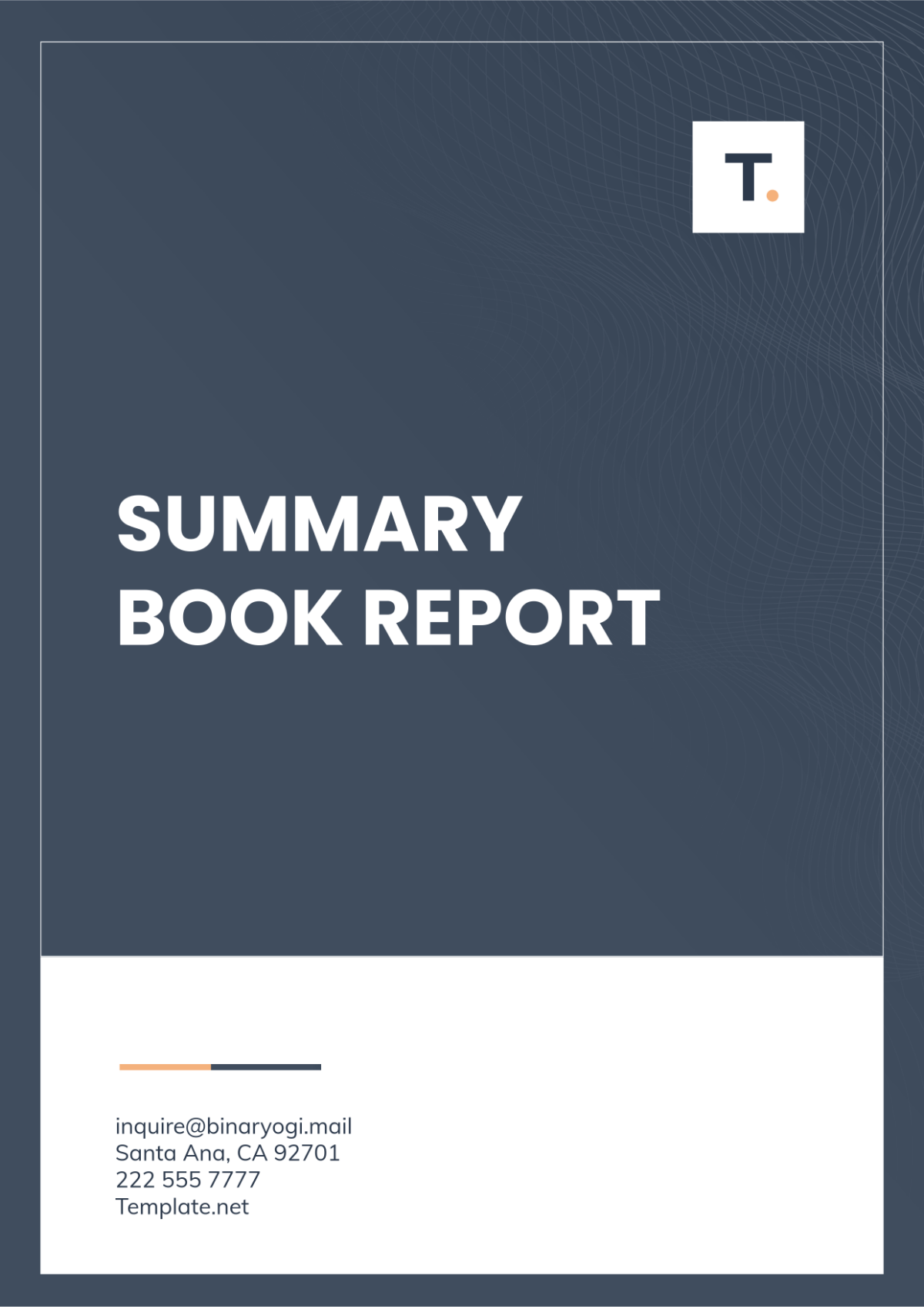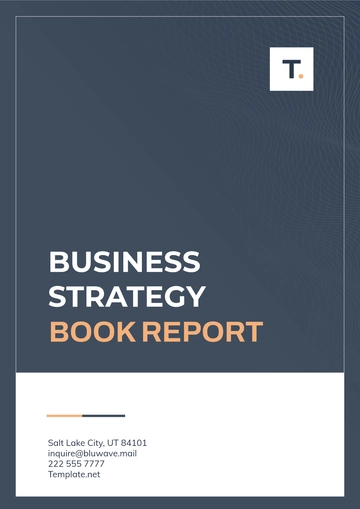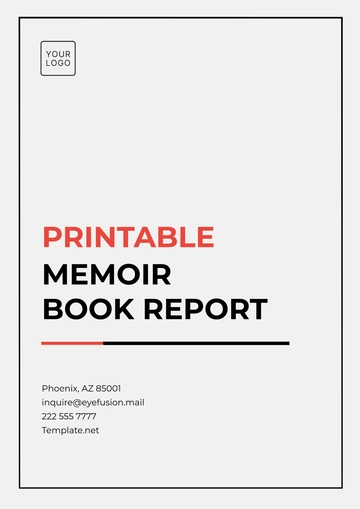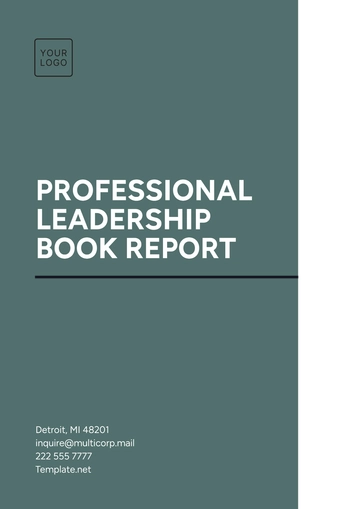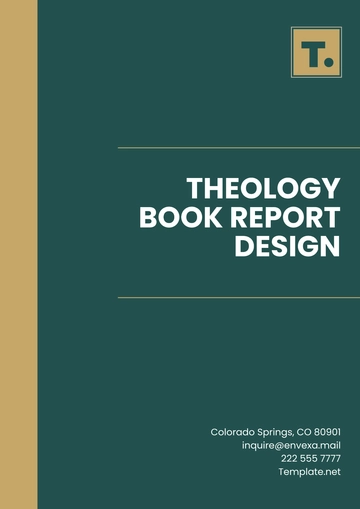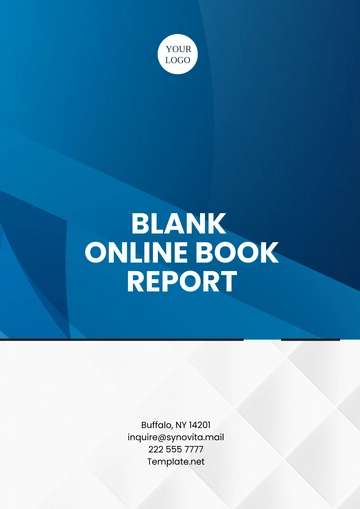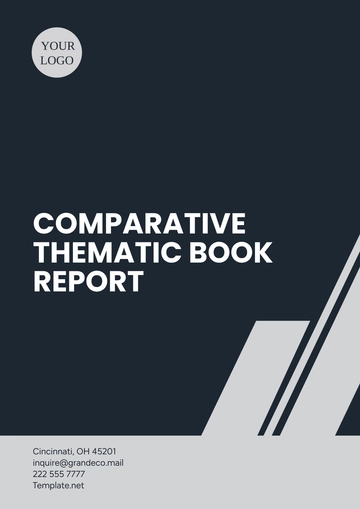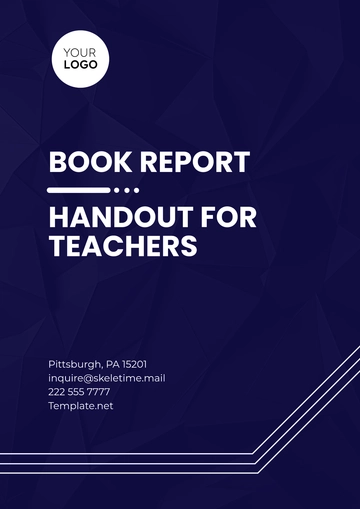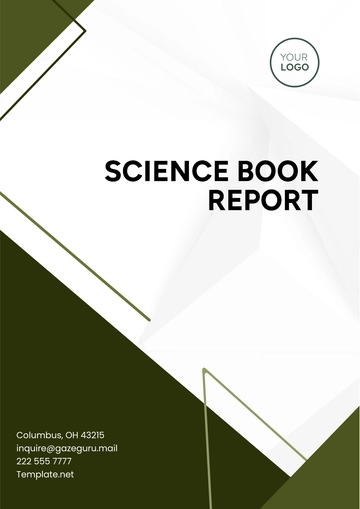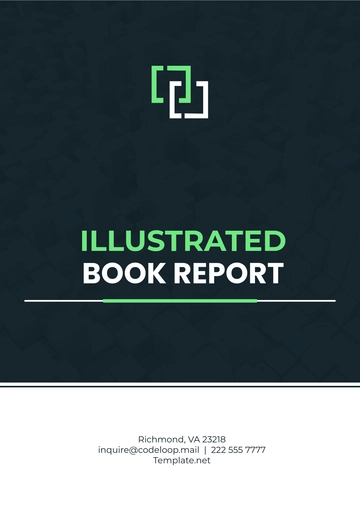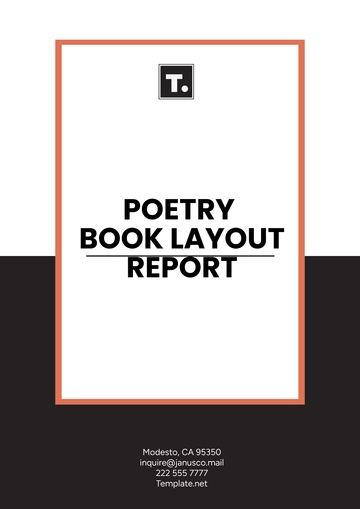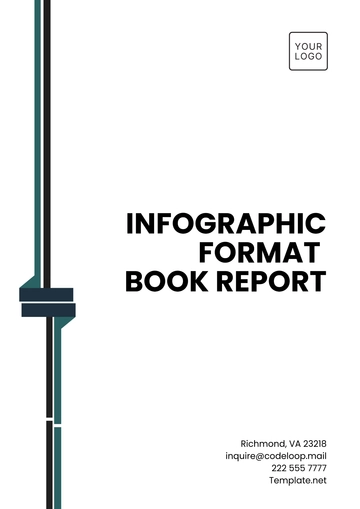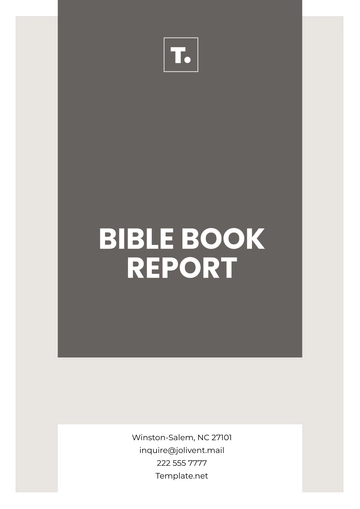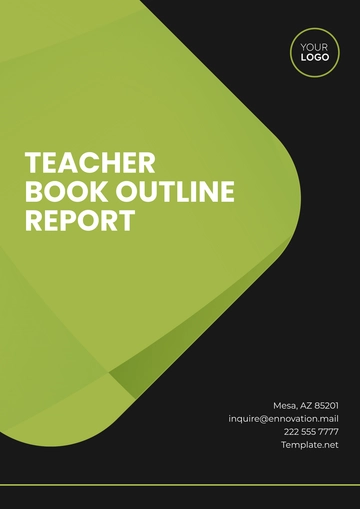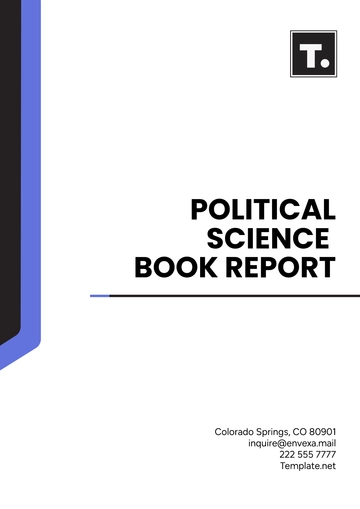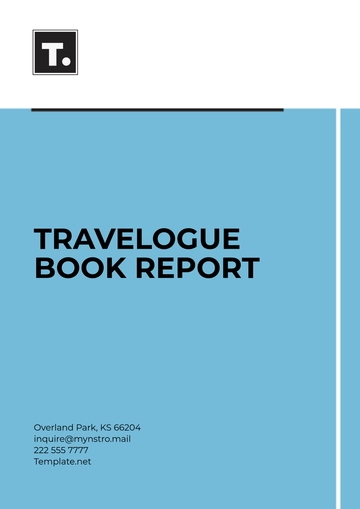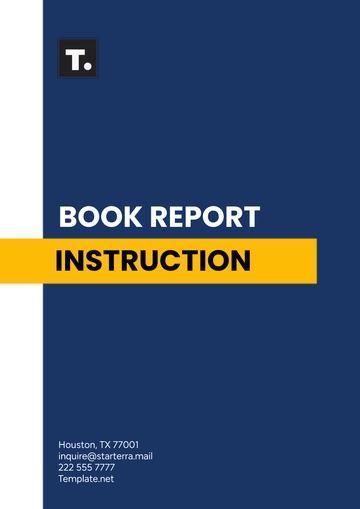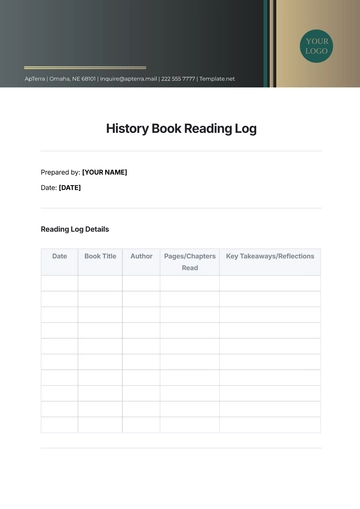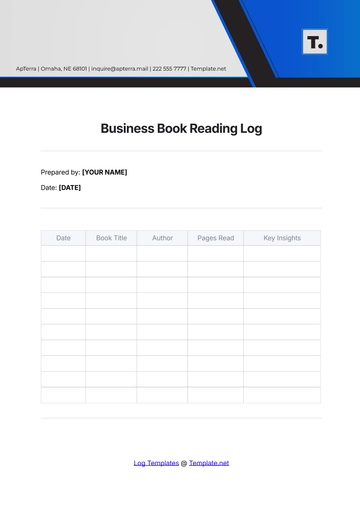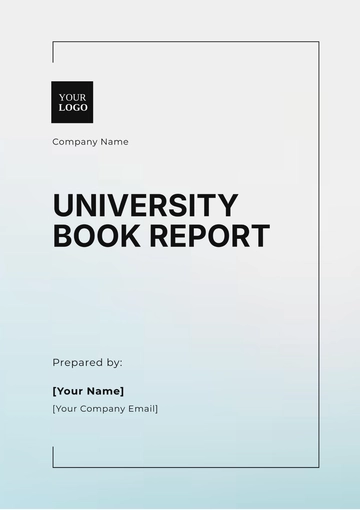Summary Book Report
Prepared by: [Your Name]
Date: October 29, 2050
I. Overview of the Book
The book titled "The Quest for Knowledge" by Dr. Elizabeth Harrington is a compelling exploration of the intersection of technology and education. It delves into how advancements in technology have transformed traditional learning environments and the implications for future generations.
Key Themes:
The role of technology in enhancing educational experiences.
Challenges and opportunities in integrating technology into curricula.
The future landscape of education as influenced by emerging technologies.
II. Author Background
Dr. Elizabeth Harrington is a renowned educator and author with over two decades of experience in the field of educational technology. She holds a Ph.D. in Educational Leadership from Stanford University and has published multiple books on technology integration in education. Her expertise lends credibility to her insights presented in this book.
Educational Background:
Degree | Institution | Year Obtained |
|---|
Ph.D. | Stanford University | 2005 |
M.Ed. | Harvard University | 2000 |
B.A. | University of California | 1998 |
III. Detailed Summary of the Book
"The Quest for Knowledge" is structured into ten chapters, each focusing on a different aspect of educational technology. Below is a summary of key chapters:
Chapter Number | Chapter Title | Key Points |
|---|
1 | Introduction to EdTech | Overview of educational technology and its evolution. |
2 | Classroom Innovations | Case studies of successful technology integration in classrooms. |
3 | Pedagogical Shifts | Discussion on new teaching methodologies emerging from technology. |
4 | The Digital Divide | Examination of equity in access to technology. |
5 | Future Trends in Education | Predictions on future educational technologies and methodologies. |
Chapter Insights
The introduction sets the stage for the discussion by highlighting the rapid evolution of technology in education, citing statistics that show a significant increase in digital tool adoption among teachers and students. Dr. Harrington provides compelling arguments supported by research data and anecdotes from educators.
In Chapter 4, "The Digital Divide," the author emphasizes the disparity in access to technology among different socio-economic groups, raising important questions about equity in education. This chapter is particularly poignant, as it calls for urgent measures to ensure all students have the tools they need to succeed.
IV. Critical Analysis
While "The Quest for Knowledge" offers valuable insights, there are areas where the book could have explored deeper. For example, the chapter on classroom innovations presents only a limited number of case studies, which may not represent the diverse experiences of educators across different regions.
Strengths:
Weaknesses:
Limited case studies in certain chapters.
Some predictions might be too optimistic, ignoring challenges.
V. Conclusion
Overall, "The Quest for Knowledge" is a thought-provoking read for educators, policymakers, and anyone interested in the future of education. Dr. Harrington’s expertise and passion shine through, making this book a valuable contribution to the ongoing discourse on technology in education.
For more information about this report or to discuss the book further, please feel free to reach out via email at [Your Email] or contact me at [Your Company Number]. I look forward to engaging in meaningful conversations about these critical issues.
Report Templates @ Template.net
